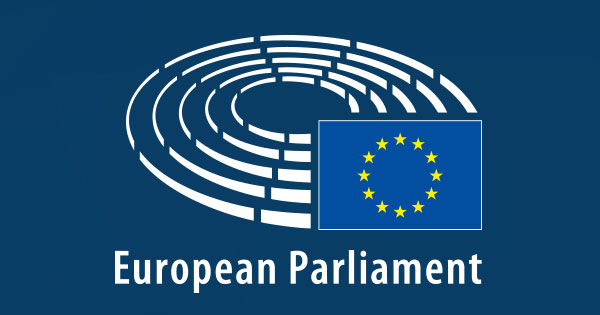On Tuesday, the Atmosphere, Public Well being and Meals Security Committee adopted its place on the brand new directive (66 votes in favour, two in opposition to and 9 abstentions) and regulation (67 votes in favour, six in opposition to and 7 abstentions) overlaying medicinal merchandise for human use.
Regulatory knowledge and market safety: incentives for innovation
To reward innovation, MEPs wish to introduce a minimal regulatory knowledge safety interval (throughout which different firms can’t entry product knowledge) of seven and a half years, along with two years of market safety (throughout which generic, hybrid or biosimilar merchandise can’t be offered), following a advertising authorisation.
Pharmaceutical firms can be eligible for extra durations of knowledge safety if the actual product addresses an unmet medical want (+12 months), if comparative scientific trials are carried out for the product (+6 months), and if a big share of the product’s analysis and growth takes place within the EU and no less than partly in collaboration with EU analysis entities (+6 months). MEPs additionally need a cap on the mixed knowledge safety interval of eight and half years.
A one-time extension (+12 months) of the two-year market safety interval could possibly be granted if the corporate obtains a advertising authorisation for an extra therapeutic indication which offers important scientific advantages compared with current therapies.
Orphan medication (medicines developed to deal with uncommon ailments) would profit from as much as 11 years of market exclusivity in the event that they handle a “excessive unmet medical want”.
Step up the battle in opposition to antimicrobial resistance (AMR)
MEPs underline the necessity to increase the analysis and growth of novel antimicrobials, notably via market entry rewards and milestone reward fee schemes (e.g. early-stage monetary support upon reaching sure R&D aims previous to market approval). These can be complemented by a subscription model-based voluntary joint procurement scheme, to encourage funding in antimicrobials.
They agree with the introduction of a “transferable knowledge exclusivity voucher” for precedence antimicrobials, offering for a most 12 further months of information safety for an authorised product. The voucher couldn’t be used for a product which has already benefited from most regulatory knowledge safety and can be transferable solely as soon as to a different advertising authorisation holder.
Among the many new measures to advertise the prudent use of antimicrobials, MEPs need stricter necessities, equivalent to limiting the prescriptions and dispensation to the quantity required for the remedy and limiting the length for which they’re prescribed.
Strengthened necessities for environmental threat evaluation
These new guidelines would require firms to submit an environmental threat evaluation (ERA) when requesting a advertising authorisation. To make sure ample analysis of ERAs, MEPs need the creation, inside the European Medicines Company, of a brand new ad-hoc environmental threat evaluation working get together. MEPs insist that the chance mitigation measures (taken to keep away from and restrict emissions to air, water and soil) ought to handle the complete life cycle of medicines.
Elevated independence for EU well being emergency physique
To successfully handle public well being challenges and increase European analysis, MEPs need the European Health Emergency Preparedness and Response Authority (HERA, presently a Fee division) to turn out to be a separate construction below the European Centre for Illness Prevention and Management (ECDC). HERA ought to primarily give attention to the battle in opposition to essentially the most pressing well being threats, together with antimicrobial resistance and drugs shortages.
Extra particulars on MEPs’ particular proposals can be found on this background document.
Quotes
Rapporteur for the directive Pernille Weiss (EPP, DK) mentioned: “The EU pharmaceutical laws revision is significant for sufferers, trade and society. At the moment’s vote is a step in the direction of delivering the instruments to deal with current and future healthcare challenges, notably for our market attractiveness and drugs entry throughout EU international locations. We hope Council takes be aware of our ambition and dedication to create a strong legislative framework, setting the scene for immediate negotiations.”
Rapporteur for the regulation Tiemo Wölken (S&D, DE) mentioned: “This revision paves the way in which to addressing essential challenges equivalent to medicines shortages and antimicrobial resistance. We’re strengthening our healthcare infrastructure and reinforcing our collective resilience forward of future well being crises – a big milestone in our pursuit of fairer, extra accessible healthcare for all Europeans. Measures bettering entry to medicines, while incentivising areas of unmet medical wants, are essential components of this reform.”
Subsequent steps
MEPs are scheduled to debate and vote on the Parliament’s place throughout the 10-11 April 2024 plenary session. The file will likely be adopted up by the brand new Parliament after the European elections on 6-9 June.
Background
On 26 April 2023, the Fee put ahead a “pharmaceutical package” to revise the EU’s pharmaceutical laws. It consists of proposals for a brand new directive and a brand new regulation, which purpose to make medicines extra out there, accessible and inexpensive, whereas supporting the competitiveness and attractiveness of the EU pharmaceutical trade, with increased environmental requirements.
